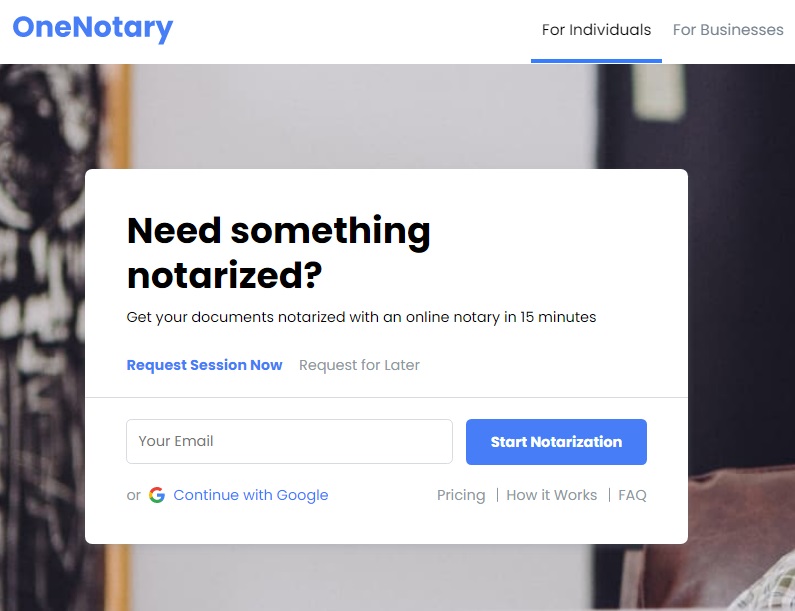Difference Between Durable and General Power of Attorney

If you need to get certain documents notarized, one of them could be a power of attorney. This is an important document, so it is important to understand the implications of the power of attorney, what this means, and when it might be used. Furthermore, you need to work with a notary who can make sure you understand the document you are signing. For example, you may need to learn the difference between a durable and general power of attorney. What do you need to know about certain powers of attorney?
What Is the Power of Attorney?

A power of attorney is a specific letter that is written to authorize someone to act on behalf of someone else in certain situations. For example, someone may be unable to take care of their financial situation. Or, someone might be unable to make healthcare decisions for themselves. In this situation, it is important for that individual’s wishes to be respected, which is why it is important to appoint someone specifically to make these decisions. When someone is given the power to make decisions for someone else, this is usually called the power of attorney. There are numerous types of powers of attorney, and there are different powers they may have.
Common Powers of a Power of Attorney
The exact powers of a power of attorney are going to vary depending on the type of document signed; however, there are several common powers that a power of attorney may possess. A few examples include:
- Someone may be able to make healthcare decisions for someone else in certain situations.
- There are situations where someone may be able to collect Medicare or social security benefits for someone else.
- Someone may be able to claim inheritance or other property on behalf of someone else.
- A power of attorney may give someone the ability to file and pay taxes on behalf of another party.
- Someone with a financial power of attorney may be able to invest in stocks, bonds, mutual funds for someone else.
- A power of attorney may give someone the ability to manage property and retirement accounts.
It is critical for people to make sure they understand exactly what the scope of the powers under a power of attorney agreement is.
POA Types Differences
Because there are several types of powers of attorney, it is important for people to understand the differences. A few common examples include:
- Someone with a general power of attorney may have the ability to oversee the legal, real estate, business, and financial matters. A general power of attorney can be extensive, so it is important to clearly specify the boundaries of the agreement.
- A medical power of attorney to give someone the ability to make medical decisions for someone else if that individual is no longer able to do so. For example, if someone is knocked out for a surgical procedure, someone else needs to be appointed to make decisions that could arise during the case.
- A springing power of attorney is a specific power of attorney that only goes into effect when someone is incapacitated. For example, someone who served overseas may have a springing power of attorney go into effect in certain situations when they are gone.
These are just a few of the most common types of powers of attorney. It is critical to understand the differences.
What Is the Difference Between a General Power of Attorney and a Durable Power of Attorney?
When it comes to a durable power of attorney vs power of attorney in the general sense, there are a few notable differences. A general power of attorney ceases to exist the moment someone becomes incapacitated. Even though this is an important legal tool in certain situations, this is not the right power of attorney for making end-of-life decisions. It does not stay into effect when someone is under extreme duress.
In contrast, a durable power of attorney states that someone has the authority to continue to make decisions if a certain individual becomes incapacitated. There is no automatic deadline that causes these powers to expire. Therefore, this is more appropriate for end-of-life situations.
How To Get POA Notarized Online with OneNotary

If you need to put a power of attorney into effect, then you need to get the document notarized. One way you can do so is to work with OneNotary, which can help you get your documents notarized remotely. To get a document notarized through OneNotary, a few steps you need to follow include:
- First, you need to take a look at the available appointment times and select one that works best for you.
- Then, you need to use the link provided in the confirmation email to upload the documents that need to be notarized.
- You will also need to answer a few questions to confirm your identity.
- When it is time for your appointment, you will meet with your notary using video conferencing technology.
- After the session is finished, the notary will notarize your documents before you can download them.
If you can get your documents notarized remotely, you can save a significant amount of time during the process.
Frequently Asked Questions About Powers of Attorney
There are several common questions people have about powers of attorney. These include:
- Does a power of attorney give someone the ability to make medical decisions for someone else?
In certain situations, a power of attorney can give someone the ability to make medical decisions when the individual is no longer able to do so. This is usually called a medical power of attorney, in the circumstances under which it goes into effect need to be clearly stated.
- Does a power of attorney ever expire?
There are situations where a power of attorney may expire. For example, a general power of attorney usually expires when someone is incapacitated. If you have questions about when a power of attorney expires, you should clarify them before signing.





